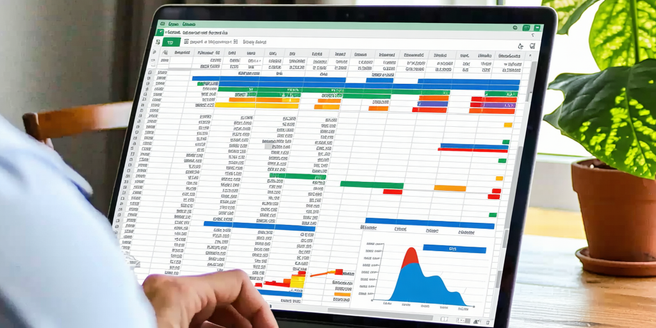Proactive Cost-saving For Landlords

Understanding Operational Expenses for Landlords
Understanding operational expenses is crucial for landlords aiming to maintain profitable rental properties. These expenses encompass a range of costs including maintenance, utilities, property management fees, and unexpected repairs. Properly budgeting for these elements ensures that financial surprises are minimized. Landlords should regularly review and adjust estimations for these costs, accounting for inflation and regional variations. Keeping detailed records of all expenditures allows for more accurate forecasting and smarter financial planning. Technology solutions like property management software can assist in tracking these expenses effectively. Additionally, seeking professional advice on tax deductions and expense attribution can lead to significant savings. By understanding the operational demands and financial obligations of rental properties, landlords can strategically plan for the future, aligning costs with revenues, and sustaining cash flow throughout the year.
Evaluating the Benefits of Energy Efficiency
Evaluating energy efficiency improvements offers numerous benefits for landlords seeking to reduce operational costs. Upgrades such as installing energy-efficient windows, LED lighting, and smart thermostats can significantly decrease utility expenses. While the upfront investment may be substantial, the long-term savings and increased property value are worthwhile considerations. Energy-efficient properties are often more attractive to potential tenants, leading to higher occupancy rates and rental income. Additionally, some regions offer financial incentives for landlords who implement sustainable practices in their properties. It is important for landlords to perform cost-benefit analyses and consider the potential return on investment for each energy-efficient upgrade. By prioritizing energy efficiency, landlords contribute to environmental conservation and achieve lower operating costs, making their properties both economically and ecologically sustainable.
Choosing Cost-effective Maintenance Solutions
Choosing cost-effective maintenance solutions is vital for landlords looking to conserve financial resources. Preventive maintenance is a key strategy that can reduce the cost of repairs over time by addressing potential issues before they escalate. Regular inspections of systems such as HVAC, plumbing, and electrical can prevent major failures and prolong the lifespan of these installations. Landlords can also consider purchasing in bulk for common maintenance supplies, taking advantage of discounts. Outsourcing maintenance to reliable service providers might seem expensive initially, but can save time and reduce disruptions for tenants. Developing relationships with trusted contractors can lead to better rates and priority service. By staying informed about affordable yet effective maintenance technologies and practices, landlords can maintain their properties in optimal condition without overspending, ensuring tenant satisfaction and property value retention.
Implementing Smart Technology for Savings
Implementing smart technology is an innovative approach for landlords aiming to save on operational costs. Smart home devices such as intelligent lighting systems, smart thermostats, and automated security features can provide significant savings on energy and maintenance expenses. These technologies allow for remote monitoring and management of properties, offering convenience and efficiency. Additionally, smart technologies often provide data insights that help landlords understand usage patterns and identify further areas for cost reduction. Tenants appreciate the modern conveniences these technologies offer, potentially leading to increased property desirability and higher rent values. While the initial cost of integrating smart technology can be high, the return on investment through cost savings and tenant satisfaction is substantial. Landlords can benefit from staying abreast of technological advancements and integrating applicable solutions for improved property management.
Negotiating Better Rates with Service Providers
Negotiating better rates with service providers is a critical strategy for landlords aiming to control costs. Consistent communication with service vendors, such as waste management, landscaping, and cleaning services, can pave the way for better pricing agreements. Landlords should research competitive rates and prepare to discuss these with their current providers, using it as leverage to negotiate more favorable terms. Establishing long-term contracts can also result in discounted rates, while bundling multiple services from a single provider might yield further cost benefits. Developing a positive working relationship with service providers ensures priority service and agreement flexibility when needed. Being informed about alternative vendors and remaining open to new partnerships can lead to cost savings. Employing negotiation skills effectively can significantly lower service fees, directly impacting overall property profitability.
Tracking and Managing Rental Property Costs
Tracking and managing rental property costs is an essential practice for landlords focusing on financial efficiency. Implementing a system for regular financial reviews allows landlords to identify trends and discrepancies early. Utilizing property management software or spreadsheets to categorize expenses provides clarity and aids in budgeting efforts. Keeping track of maintenance activities, utility bills, and administrative costs ensures that all aspects of the property management process are accounted for. Landlords should also be aware of tax-saving opportunities and seek professional advice to navigate complex regulations. Establishing a reserve fund for unexpected expenses is another key component of cost management. By meticulously tracking income and expenditures, landlords can make informed decisions, optimize spending, and maintain profitable operations, thereby enhancing the long-term financial health of their rental properties.